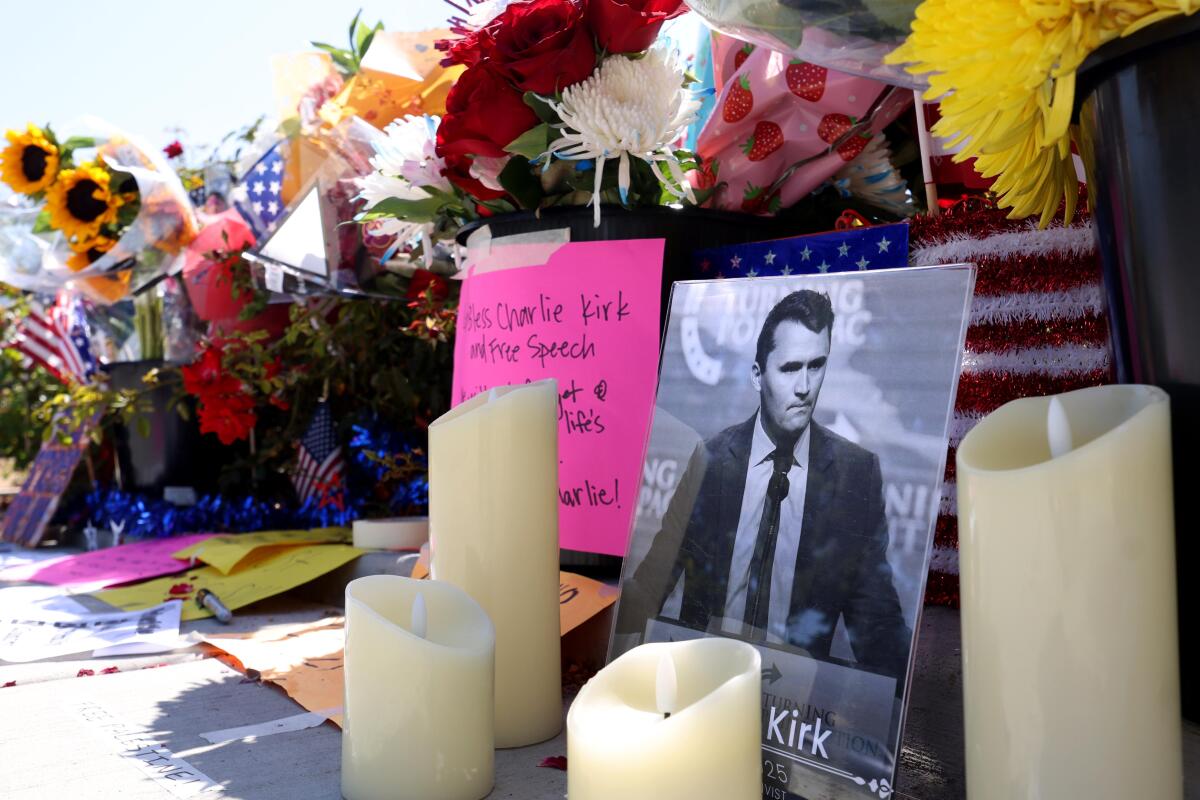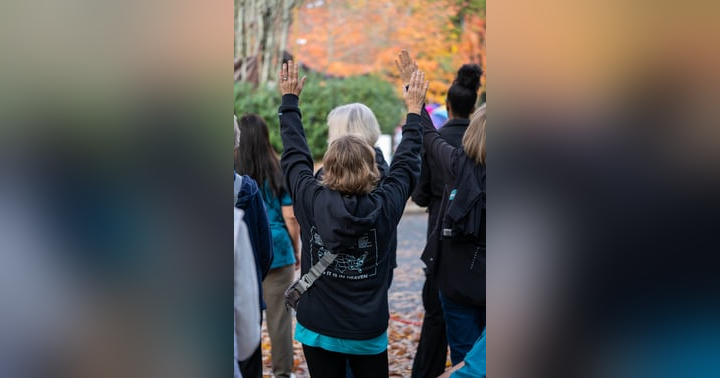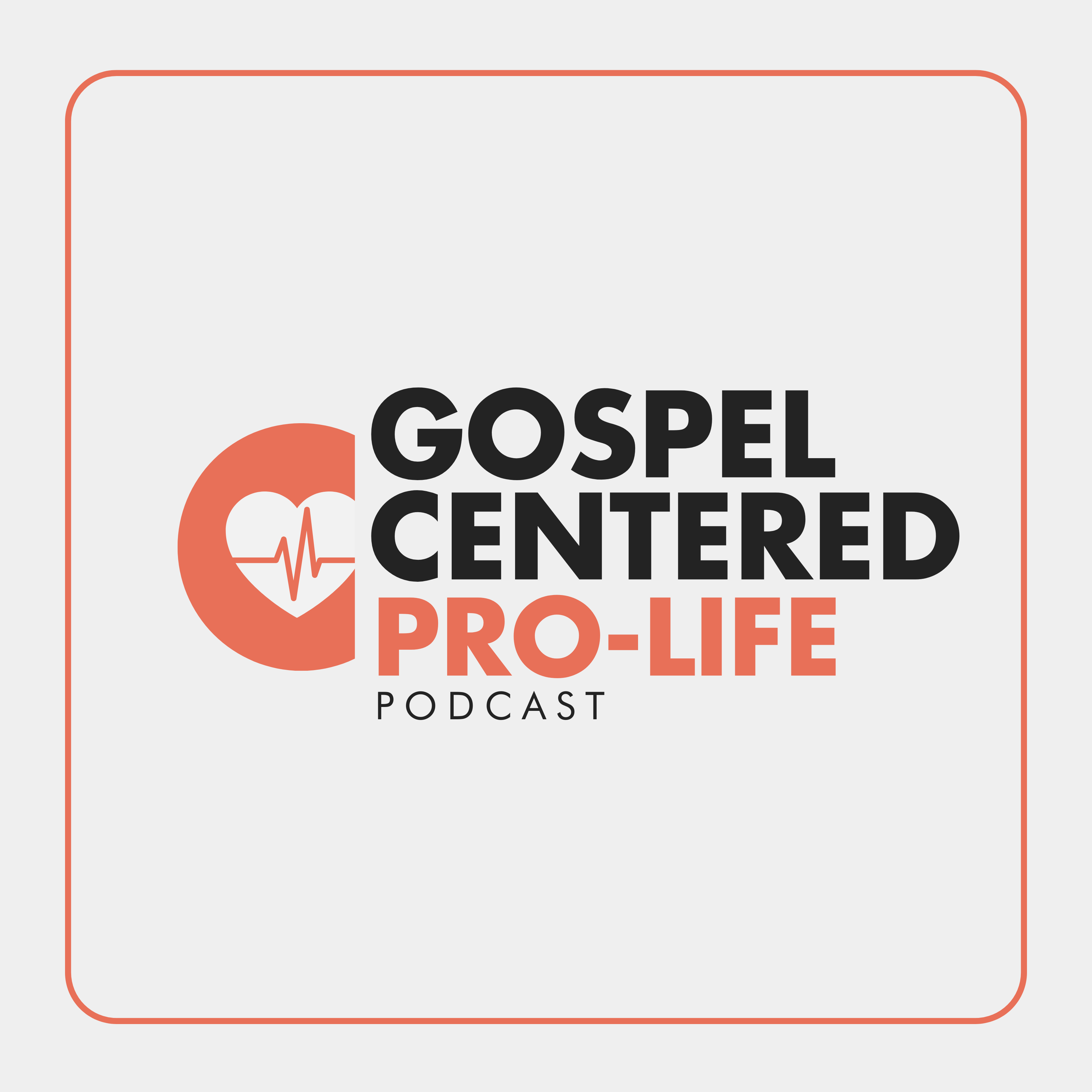How Should Sidewalk Outreach Teams Respond to the Charlie Kirk Murder

The recent assassination of Charlie Kirk shook the Christian world. Good versus evil was on full display as our nation endured yet another act of senseless violence against an innocent human being. As we watched the young widow sobbing, and saw pictures of her and Charlie together, smiling and holding their two young children, we were all heart-broken. The fact that Charlie Kirk was an outspoken proponent for the rights of the unborn, calling every Christian to action, made him a hero to all of us involved in Abortion Sidewalk Outreach.
We were utterly devastated by this senseless act of violence against someone we admired who loved God so deeply. It dismayed us that a young man chose to kill Charlie because he did not agree with his viewpoint or worldview. It is not surprising that people involved in Sidewalk Outreach might begin to question could I be the next target?
Could we be the next target?
We might be. Evil will not suddenly end with this recent violence. It is likely that evil will continue to strike as it has since the Garden of Eden. Jesus warns us that in this world we WILL have troubles. The Bible is filled with stories of the adversity that faithful followers of God have faced from the beginning of our time on Earth.
So how should we as Sidewalk Outreach team members process this information and respond?
Do Not Give in to Fear
First, the Bible is clear. God mentions 365 times: do not fear. God tells us He does not give us a spirit of fear. “For God has not given us a spirit of fear, but of power and of love and of a sound mind.” II Timothy
So, the first takeaway from this awful event is that while fear would be a very natural response, we must pray to God to take away that spirit of fear and replace it with the spirit of courage and strength in Him.
Know the Source of Strength
The next takeaway is to know the source of our strength. The apparent strength of the enemy can be overwhelming. Charlie Kirk had no chance against a sniper with a bullet. David had no chance against Goliath. Moses had no chance against Pharaoh. Yet, throughout the Bible, the weak overcome the strong.
How?
The key point to remember is they never do it on their own strength. They always do it with the strength of the Lord. We can claim that same source for OUR strength. He who is in us is greater than he who is in the world.(1 John 4:4) We are weak, but he is strong. God’s strength is perfected in our weakness. (2 Corinthians 12:9)
Does this mean the outcome will be exactly as we hope or expect? No. God’s ways are inscrutable and higher than our ways. Nonetheless, He calls us to go in His strength and trust His outcomes.
Do Not Be Discouraged and Lose Heart
A third takeaway is that in the presence of evil apparently winning, we can become discouraged and lose heart. The greatest example of this is when Jesus is crucified and the disciples were in fear for their lives. They run and hide in an upper room, utterly confused and disheartened. And then, Jesus rises from the grave and appears to them, telling them: “Peace be with you.” ( John 20:19).
Daniel is snatched safely out of the jaws of the hungry lions. The Red Sea parts as Pharoah’s army descends upon the Israelites, saving them. Israel, the smallest of nations and one of the most despised, is chosen to be God’s special chosen people from whom the Messiah would come. Over and over again, God uses the weakest and the least significant people, and the most distressing events to bring about an unexpected and overwhelming victory. Instead of feeling discouraged, we should be energized to carry on the mission that Charlie Kirk, and all those who love the Lord are called to undertake.
Safety VS Sanctification
The fourth takeaway is that we should resist thinking our safety is more important than being used and sanctified by God. We could retreat from the sidewalks and from being vocal about the protection and rights of the unborn. That may indeed feel like a place of safety. We probably would be less likely to be targeted by those who oppose God.
However, remember Esther when Mordecai warns her that if she does not speak up to urge the King to protect her people, what assurance was there that she would be safe? Furthermore, God would still engineer a victory, but she would be deprived of the privilege of being used by Him. Like Esther, we are asked to stand with even more courage for such a time as this.
Our Weapons Are Spiritual
The fifth takeaway is that when we face unspeakable evil, God is very clear about how we need to fight. We do not fight by running away or shutting our ears and our mouths to the evil. We fight through spiritual means, knowing it is a spiritual battle. Mark 9:29 reminds us that we are to fight evil and demonic influence through prayer and fasting. We are to put on the full spiritual armor of God (Ephesians 6) and we are to pray for God to strengthen us for the battle and equip us. We are not to lose heart even when the battle appears to be lost. We are not to give up, but we are called to endure until we hear the words: well done, good and faithful servant.
Trust in the Lord
The final takeaway is to “Trust in the Lord with all your heart and lean not upon your own understanding. In all your ways, acknowledge him, and he will direct your path.” Proverbs 3:5
We know these verses are true, and we must trust God even when they don’t feel true. We are not to trust Him only when things are going as we would hope and pray. We are to trust Him, especially through the valleys and in the hard times when we do not quite see a clear path to victory. We are not to trust Him only in some things, but in all things.
We are called to continue our work on the sidewalk with renewed resolve in the face of such devastating setbacks. We may want to retreat or even give up…but God says: trust Him in all things. Fight the good fight. Run as though to win the race. Continue faithfully to the finish line.
“Do you not know that those who run in a race all run, but one receives the prize? Run in such a way that you may obtain it.” I Corinthians
We may falter. We may doubt. None of us are perfect this side of heaven. At those times, we should pray, like the father of the demon-possessed boy in Mark 9. Jesus asks him if he believes that all things are possible to those who believe. The father answers: I do believe, help my unbelief.
This humble, vulnerable prayer of submission and faith should be our prayer as well when we stumble and worry that we are not strong enough for this very hard, hard battle. We are not. But God is.
“And He said to me, “My grace is sufficient for you, for My strength is made perfect in weakness.” Therefore most gladly I will rather boast in my infirmities, that the power of Christ may rest upon me. Therefore I take pleasure in infirmities, in reproaches, in needs, in persecutions, in distresses, for Christ’s sake. For when I am weak, then I am strong.”










